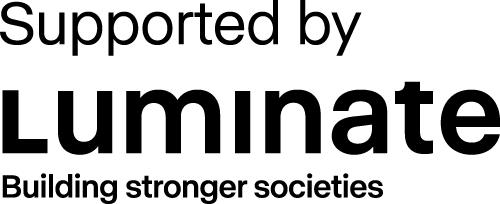


Effective management of state-owned enterprises remains a significant challenge in terms of the country's economy. Over the years, the inefficient and opaque management policies of state-owned companies have had a significant impact on their financial outcomes. For example, the losses of state-owned enterprises in 2019 amounted to 237 million GEL, in 2018 - 816 million GEL.
These opaque and unaccountable activities of state-owned enterprises do not allow the public to fully assess and analyze the existing problems in this area. Although these companies often exercise public legal authority and manage public finances, they oftentimes still refrain from disclosing public information.
The financial outcomes and existing challenges facing state-owned enterprises are reviewed in the 2021 state budget fiscal risk analysis document prepared by the Ministry of Finance of Georgia.The analysis prepared by the Ministry is based on data from 352 state-owned enterprises (173 - owned by local government, 179 - owned by central government).According to the fiscal risk analysis document, the fact that the losses in state-owned enterprises in 2019 were significantly reduced compared to the previous year is still not a significant basis for optimism on the issue, and it is necessary to implement state-owned enterprise reform.The large amount of losses incurred by state-owned enterprises in recent years, along with the depreciation of assets, was also precipitated by the quasi-fiscal activities that serve social and political purposes and which would not be implemented by a profit-oriented enterprise.For example, Enguri HPP supplies electricity to the occupied region of Abkhazia free of charge, JSC Georgian Railway subsidizes passenger transportation, JSC Georgian Oil and Gas Corporation subsidizes household gas tariffs, etc.The Ministry of Finance began the identification and publication of quasi-fiscal activities in 2017, and these have been identified only in 6 companies so far.
- Despite the financial problems in state-owned companies, a growing trend of employment in all sectors of enterprises has been maintained. In particular, in 2019, compared to the previous year, the number of employees increased by about 2% (+575 employees).
- In 2019, the salaries of employees of 14 state-owned companies amounted to 428 million GEL, a 9% increase compared to 2018 (392 million).
- In the state enterprises surveyed, labor costs saw an increase between 4% and 32% in 2019 as compared to the previous year.
- The growing trend in the salary expenses of state-owned companies was largely maintained against the background of the unfavorable financial performance of the companies. For example, in JSC Georgian Oil and Gas Corporation, salary expenditures increased by 15% while annual profits decreased by 40 million. Remuneration costs in the United Water Supply Company of Georgia Ltd increased by 8% in 2019, while the company's losses amounted to 85 million.
- Individual companies that receive subsidies from the state budget have been issuing bonuses to their employees. For instance, Ltd Georgian Land Reclamation paid 2.8 million GEL in bonuses in 2018-2019 (2019 - 1.3 million, 2018 - 1.5 million), Ltd Black Sea Arena Georgia issued 1.1 million GEL (2019 - 315 thousand, 2018 - 759 thousand).
- The remuneration of the management of 11 state-owned companies in 2019 amounted to 9.5 million GEL in total, which is around a 15% increase compared to 2018 (8.3 million).
- Asset declarations forms filled out by the heads of specific state-owned companies do not contain information about the remuneration received by them.
This data show that the heads of state-owned enterprises, regardless of the financial outcomes demonstrated by the company under their management, are distinguished by high wages. Simultaneously, IDFI believes that the remuneration data reflected in the financial statements and the declared incomes of the people in managerial roles do not fully assess the scale of the challenges facing wage policy in state-owned companies and their negative impact on the companies’ financial outcomes. At the same time, the opaque activities of state enterprises significantly increase the risks of irrational personnel and payroll policies.
IDFI welcomes the steps taken to implement reforms of state enterprises and hopes that relevant legislative changes will be made within the framework of the ongoing reform process in order to ensure the transparency of state-owned enterprises, the regulation of employment and remuneration policies, and the setting of accountability standards.
/public/upload/Analysis/State-Enterprises-eng.pdf

The study was prepared within the grant for Good Governance for Georgia (3G) project from the global philanthropic organization, Luminate. The Institute for Development of Freedom of Information (IDFI) is responsible for the content of this document. Views expressed in therein do not reflect the position of Luminate